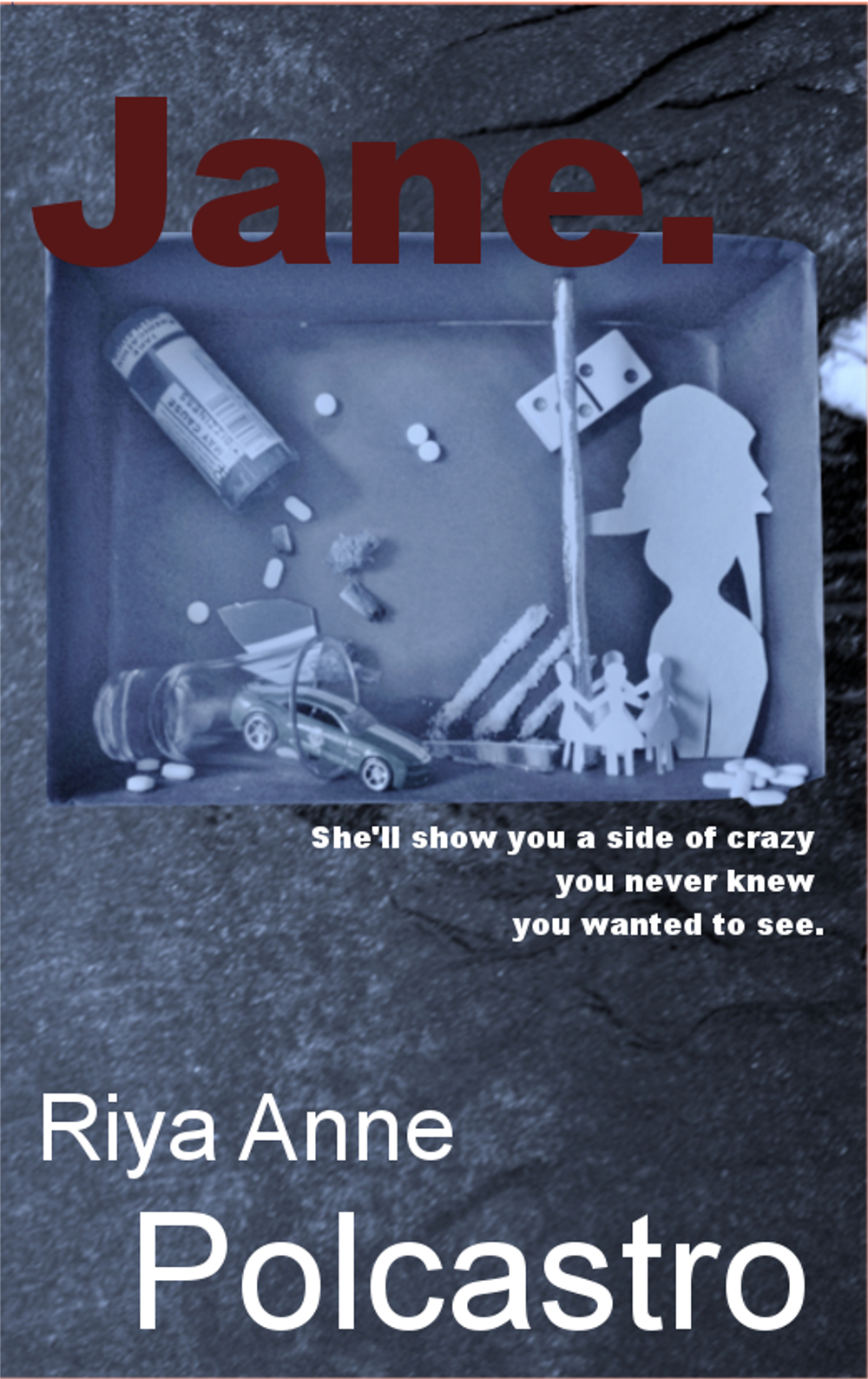JS Lee
Feb 12, 2016 | 1st pages, Literary

Ever since the nice lady with the hazelnut-scented hair packed up her things and slammed the door with unmistakable finality, my life has become a pitiful existence. My food is dispensed without any regularity. My water sits stale or empty for days, and I'm hard-pressed to find a surface that’s clean.
There’s one spot on the window sill where her plants used to grow. I sit there, behind the curtain, veiled from the lump of a man who can’t seem to stop shaking himself beneath the blanket on the couch. She took the bed, dining set—pretty much everything that made this place a home. Now he alternates between cries and chronic masturbation—where he eats, sleeps, and zones out to the TV screen. His life might be more pitiful than mine.
Elena—with the long, hazelnut waves of hair—was supposed to be out all night at her best friend’s bachelorette affair. Marc—with his uncontrollable libido—assumed he would safely get away with his plan.
Cats are different beasts entirely, but Elena had already made it clear once before how she felt about Marc mating with other women. And so I did everything in my power to stop it. I climbed up onto the back of the couch and meowed when things got heated between Marc and the foul-smelling woman. He rudely shoved me away. I emerged again, cleaning my tail with one leg in the air, in perfect view of the strange woman. She scowled at me and said “ew,” and back down I went.
Once they were both naked, I ran across his balls, hoping that would put an end to his perverted games for the night. He yelped, “That fucking cat!” The next thing I knew, he’d chucked me out of the bedroom and slammed the door. Elena was the best thing in my life. She saved me from the cold, bachelor hell with Marc when she moved in with us last year. So I cried and I clawed at the bedroom door while the two heathens made rough, barking sounds, on the other side. Surely, he’d come to his senses, I thought. This vile-smelling woman wasn’t half the woman that Elena was. Her abrasive voice and the skunky smell of her hair was no match for my clean, gentle lady.
When I heard the keys jangling at the door, my heart sank. The last time this happened, Elena threatened to leave, so I knew it was over. My lady walked in, paused, looked at me with wide eyes, and I mirrored her expression. I dropped my mouth open just a hair and bee-lined it for her ankles. I wove in and out twice before she swept me aside with her foot—which was highly out of character, I might add. She approached the door hesitantly, at first. And then, in one movement, she twisted the knob, leaned in, and let the door swing open towards the wall. I couldn’t bear witness to such humanity. I sat on the kitchen counter, faced away, while an explosion of voices set off.
Can’t say that I blame Elena for walking out on Marc, but I was let down that she walked out on me. I kept climbing into the boxes she was packing, hoping she would take the hint. However, she was mumbling nonsense, throwing things into boxes carelessly, and shouting when I slowed her down. I don’t think she was able to see me for anything other than an extension of what was in her way. When the big men came to take the last of her things, she lifted me up to her face. There were tears in her eyes. I squeezed my eyes gently at her, saying, “Please take me,” but she either didn’t understand, or didn’t want me.
She kissed the top of my head and placed me down on the couch. I followed her, weaving crookedly, just hoping she’d step on me and weaken her heart. I could handle the pain of her foot, but “please don’t leave me alone with this oaf,” I bemoaned. Once again I was not understood. In a flash, she was gone forever. It’s been several weeks since she left. Now and then, Marc reaches for me out of desperation and I scurry away. Even if I weren’t angry with him for ruining our lives, I don’t want him to touch me with those hands that are either on greasy takeout or… down there. One of us needs to exercise a little pride and decency. What I can’t understand is why he’s so upset. I figured he was tiring of Elena, and might not have cared if she went away. Otherwise, why would he risk losing her over that stinking woman who hasn’t returned?
The stench of the apartment is a deadly combination of cheap fried food, B.O., and flatulence. The worst part is that my own eliminations are added to the mix, since he doesn’t take care of my toilet. As if it weren’t bad enough that he’s given up on his own hygiene, he drags me down into the humiliation.
One weekend morning, there’s a knock at the door. I know that it’s not Elena behind it; it’s Marc’s sister. The sweet scent of delicate roses gives her away.
When he doesn’t answer fast enough, the voice on the other side says, “Let me in, Marc. You can’t just keep ignoring life.”
Marc groans from the couch and wafts more stench into the air when he emerges from the filthy blanket. He’s wearing the same blue pajama bottoms he’s had on every day since Elena left. They’re stained with red sauce and grease.
When the door opens, his sister catches a whiff of the place.
“Holy fuck, Marc! How can you live like this?”
She fans the air rapidly with her hands before giving up and covering her nose. She hurries around, opening windows with her free hand, and then disappears into the bathroom. Cabinets are opening and closing. She comes out and starts ferociously spraying something into the air.
I cough and climb onto my spot in the window.
“Thank you, Celeste.” I squint at her. “One more week and I’d have died from his emissions.”
She comes over to me and pats my head as if she understands. I always did like the girl.
Michelle Bellon
Feb 10, 2016 | 1st pages, Literary

CHAPTER ONE
Aiden
I rolled out of bed at exactly 6:42 a.m., three minutes before my alarm was due to buzz. Well, an alarm went off, but not the one on my nightstand. Our plump two-and-a-half-year-old barreled into our bedroom, arms outstretched and making loud airplane sounds. Spittle flew out of his bowed little mouth.
“Wook Daddy, I’m an aowpwane!”
After a split second, though still groggy, I transitioned from the dream world. Reluctant to start the day, I groaned a complaint. How anyone could be so full of energy that early in the morning stretched beyond my comprehension. I envied the child’s endless reserve and forced my eyes open, trying to focus.
I scooped my airplane son into my arms and out of the room so his mommy could catch another half hour of rest.
I sneaked one quick glance before shuffling out, smiling at the way Tess gave herself so fully to the retreat of sleep, her mouth slightly open and her caramel-colored skin warm against our crisp white sheets. My skin, tinged slightly darker, had a mahogany hue that Anthony inherited.
Both Tess and I come from parents of mixed ethnicity—my father Caucasian, my mother African-American, Tess’s parents the exact opposite. This bestowed us with rich, smooth skin and curly hair which I kept cut short to the scalp. She wore her mane long and thick, blessed to have a relaxed curl.
Those locks spread about her face in disarray. I curbed the desire to slip back under the covers next to her. She needed and deserved the rest. A whirlwind of nonstop activity, Tess filled every waking hour with countless daily errands and tasks with a smile on her face. She seemed to do the work of three people. Not because she was obligated to. She loved to be busy, her bubbly personality and enthusiasm infectious, so that one often found themselves offering to help her with chores they normally wouldn’t be inclined to do, just because they wanted to be with her.
John Schwartz
Feb 4, 2016 | 1st pages, Historical, Literary

I
Audrey Hepburn Comes to Visit
It happened on a bright summer day in 1943 during World War II. I was seven and staying with my grandparents on vacation at their estate in a village in the vicinity of Arnhem (a city in the center of Holland), later known for the famous movie A Bridge Too Far.
The day before, I stood in the vegetable yard watching the sky when a squadron of bombers coming from the west, probably England, was slowly moving east high in the cloudless blue yonder, surrounded by a pack of protecting fighter planes. Suddenly, a bomber in the center burst into flames with a loud bang. Strangely, the fighters didn’t move while the debris was falling to earth, and the pack went stubbornly forward towards Germany without spreading apart. We didn’t know what had hit the bomber and couldn’t see any further attacks. It gave me the shivers.
My grandmother, an imposing woman dressed in a flowery blouse and a dark-blue skirt, who was tending her roses, had seen the whole thing, too. “Go inside!” she yelled.
A day earlier, planes attacked a train coming down the track a half mile behind our house, diving from the sky, shooting and shooting, moving back up and coming down again. We heard explosions that shook the earth and made the windows rattle, and we saw huge clouds of smoke billowing up into the air. Later in the day the news spread that the planes had blown up a German ammunition train.
My grandmother remained unperturbed. “We have visitors for tea this afternoon,” she said during my daily piano lesson. “Family. Mr. van Heemstra, Aunt Ella, and her daughter Audrey are coming.”
Hal Howland
Jan 5, 2016 | 1st pages, Literary

Acrophobia and the Professor
For as long as she could remember, Sasha Mayakovski had been drawn to the water. She dipped her toes in the Mediterranean for the first time as an infant in Tel Aviv and loved splashing in the gentle waves. Her parents insisted that she and her little sister, Irina, take swimming lessons when Sasha was eight, but by then the girl needed no encouragement.
She had taught herself to get around in any body of water, natural or artificial; the lessons merely gave her the science of it. Sasha took up scuba diving as soon as she was big enough to support the gear and learned to navigate the spectacular coral reefs in the Gulf of Aqaba.
She majored in marine biology at Hebrew University, and her graduate studies at Stanford took her to the great reefs of Australia and the Florida Keys. Dr. Sasha Mayakovski became one of the leaders in her field, heading the department at the University of Miami and lecturing on conservation throughout the world.
She remained utterly fearless in the water, swimming with the shark and the barracuda as if strolling a neighborhood street with a friend. She admired and envied these creatures the way the first aviators viewed the birds of the sky.
But the sky itself was another matter.
As a child Sasha had loved diving from rocky cliffs or high boards, and she had wondered why her mother would cringe and shut her eyes during the family’s day trips via narrow mountain ledges above the Negev. This innocent enjoyment of high places disappeared suddenly one unforgettable summer afternoon.
Sasha’s father was a diplomat.
Hal Howland
Jan 5, 2016 | 1st pages, Literary

Cities
From a diary found at Smathers Beach, Key West
Washington, D.C., 1951-59
Smell of acorns, fallen maple leaves in autumn; boxwood, cut grass, red roses in summer. Vague memory of standing with Dad in the George Washington University Hospital parking lot looking up at the window where Mom was holding my newborn brother; I was only three, how could I remember that, but the picture is there. It was also the year that Dad accidentally slammed the car door on my hand at Yellowstone; I don’t recall that event or even which hand, but I heard about it for years. First bee sting, right thigh while talking to that girl across the fence who liked to play doctor. School-bus diesel smell, periodic in the suburbs, ever-present in town.
Trolleys, Christmas shopping, suspect Santas; lunch with Mom at the S&W Cafeteria. Years later teenage virgins called it the S&M Cafeteria, inviting silly images of a cheerful young cashier bent over her supervisor’s knee, having intentionally shortchanged a customer for the spanking of her dreams. Hot, humid summers that everyone else hated and I loved; the sad crispness of fall; the bleak suffering of winter, death and stillness on the trees, immobilizing snow pooled as gray slush at your numbed feet, mitigated by Alpine forts and the rosy-cheeked laughter of girls; the gossamer colors of spring, teasing of the sensual heat to come. Classical LPs and dressed-up concerts and my sister’s nascent rock and roll.
“Smoke Gets in Your Eyes”
Miami, 1958
Perpetual summer! I could live here, oh, yeah. Smell of coconut oil and every kind of blossom. Our only Christmas in a motel room. Pathetic little fake tree on a coffee table; for years thereafter we kept the tree with the other ornaments in that blue Pullman that smelled of a grandmother’s closet. Dinner alfresco at Luigi’s, Mom and Dad’s favorite. My first case of indigestion, careful with red sauce ever since, despite a generally fearless approach to world cuisine. Spanish red-roofed houses and Spanish street names in Merrick’s beloved Coral Gables, the Venetian Pool, unembarrassed tropical profusion, perpetual summer. Oh, yeah.
“Nutcracker Suite”
Tel Aviv, Beirut, 1959-61
Louvered moonlight, sea breeze, distant government gunfire, jackals crying at night. Breakfast of fish, tomatoes, melons, rolls, and orange juice at a beachfront café. Amazing house on a hill, the front at ground level, the back dropping away to a voluptuously fragrant orange grove and a vacant field where snakes and scorpions awaited the distracted walker. Waist-high sprinklers dancing in the arid lawn shaded by pines and eucalyptus. My pal J. and his passion for climbing every tree in our respective yards; his mom calling us down to lemonade and cookies, after we scrubbed fruitlessly at the sap on our hands. The piano, and piano lessons; I preferred the former. Opera, symphonies at Mann Auditorium. Famous visitors in our home, Dad’s guests, there to spread the gospel of freedom in a new and not entirely welcome theocracy.
A camplike school, detached wood cabins in a dusty, shadowed enclave, not the big brick edifice back home made to look exactly like every other grade school in America. Caesarea, a beach where you could swim and run endlessly without seeing another family, where each of you would claim a small section of silent dunes and search for old Roman coins. I was the first to find one, though all of us did. Dad soaked them in penetrating oil to remove the verdigris. I think my brother has them now. The varied landscapes of Israel, now an oasis of rolling green hills,
Riya Anne Polcastro
Dec 23, 2015 | 1st pages, Literary

I’ll show you a side of crazy you never knew you wanted to see. Jane.
Part One: Welcome to CrazyTown
1
As far as vivid childhood memories go this one is particularly traumatic. A late summer’s eve on the dock of a man-made lake in the heart of the artificial, southern California, and I am too distracted to care about the catfish for which my hook is baited. My mother is terribly mad at me. No, wait, it is worse than that. She is disappointed in me. An hour or so earlier my cousins all lined up at the dock, eager to try their hands at water skiing. Ever the bashful child I stood at the back, where I stared at my feet and prayed someone would take me by the hand and coax me through the process of finding the right size life jacket and putting it on. I never wore one before nor had I ever been out over such deep water. At ten I still could not swim and I was afraid to make such a huge leap of faith with nothing but a piece of orange foam to hold my head above water.
But no one took my hand, no one encouraged me, no one bothered to convince me that I could do it. There were five or six other kids who were not scared, that is all that mattered. And so I stayed behind in silence, a stone-front face to hide my own regret. My mother, however, makes no attempt to hide the fact that I failed a simple task. I stare at my line in the water and do not say a thing. Maybe if I am quiet she will forget that I am here. No such luck. “You know,” she says, her serious tone breaks through the peaceful air; “if you don’t get your act together you’re going to end up just like your aunt.” I turn to look at her,









